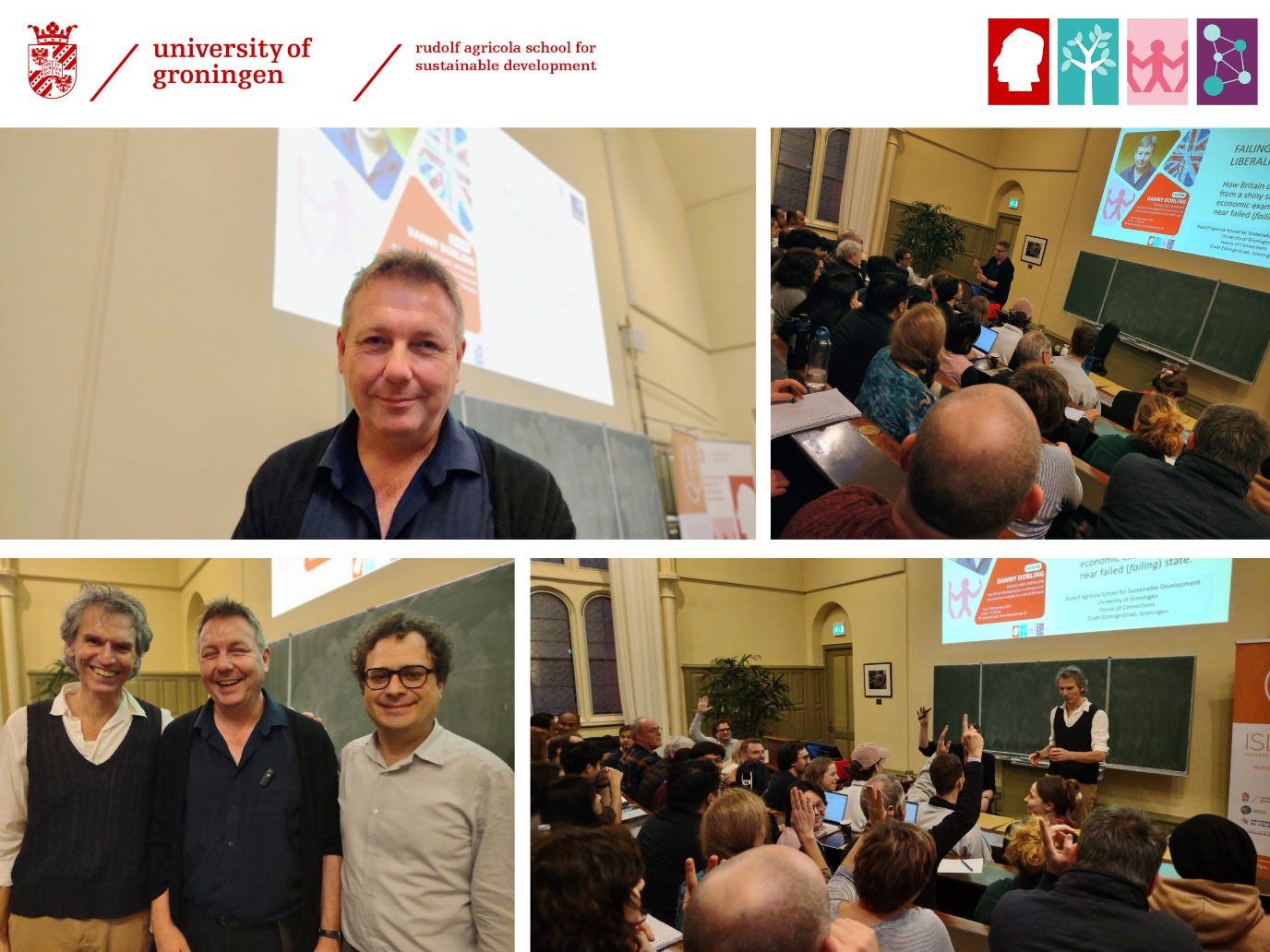How did England develop from the world's leading power into a failing state? | dr. Danny Dorling on 'Shattered Nation.'

Life expectancy is decreasing. Children are even smaller than before. England once had the best medical care in Europe. Now it’s at the bottom of the European list, only above Bulgaria.
‘If you go into houses outside of the area of Londen, Cambridge and Oxford, you’ll be shocked by what you’ll see,’ dr. Danny Dorling argued on Tuesday 19 December. ‘And that was even so before Brexit.’ It is one of the many indications that Great Britain isn’t that great anymore.
But how did England develop from the world's leading power into a failing state? Dr. Dorling is looking for an answer in his latest Book Shattered Nation. Inequality and the Geography of A Failing State, and he finds it in the many statistics about England and Europe. He presented them to a Groningen audience on invitation of dr. Dimitris Ballas and the Rudolf Agricola School for Sustainable Development.
‘In England it is always said ‘ Yes, but look to the USA,’ but they never compare us to the rest of Europe, never look to the east. And if you do so, you’ll see we're lagging behind almost every country. Except for income inequality and decrease in government spending.’
Inequality, government spending and privatization
The cause of Britains decline is mostly about inequality, government spending and privatization, Dorling showed. Inequality in Britain is very high, far higher than in France and Germany, and government spending far lower, resulting in poverty ridden regions, and a big social divide: a ‘ Shattered Nation’ indeed.
Historically, income inequality was at its lowest in the 50ths and 60ths, and started rising during theThatcher period. During the labor period – Tony Blair – it stabilized, but did not improve, to rise again after that. Dorling ‘That can’t go on forever, without results.
UK in the worst pay squeeze since the Napoleontic wars
The result is that people in the UK are now suffering the worst pay squeeze since the Napoleontic wars, Dorling told his audience. ‘Financially, I was raised in ‘Scandinavia’. Incomes had never been so equal as in the 60ths.’
But now the divide in income has never been so big and Dorling sees little political will in England to change that. The British conservative party left the right-wing group in the European parliament in 2014, to align with the far-right group instead. The group of which by example the German extreme-right party is a member. The whole political spectrum in Britain has moved to the right. Labour now is more on the right than the Conservatives were in the 60ths, Dorling stated.'
Fighting childpoverty: the example of Scotland
Dorling ended his lecture with an example of one of the many possible solutions. To end child poverty, in Scotland it was decided to give every family 25 pounds a week for every child up to 16 years.
‘That’s 4000 pounds a year if you have three children. It is the biggest and most effective measure to end child poverty. But there is no English newspaper that will mention it.’
More news
-
15 September 2025
Successful visit to the UG by Rector of Institut Teknologi Bandung

